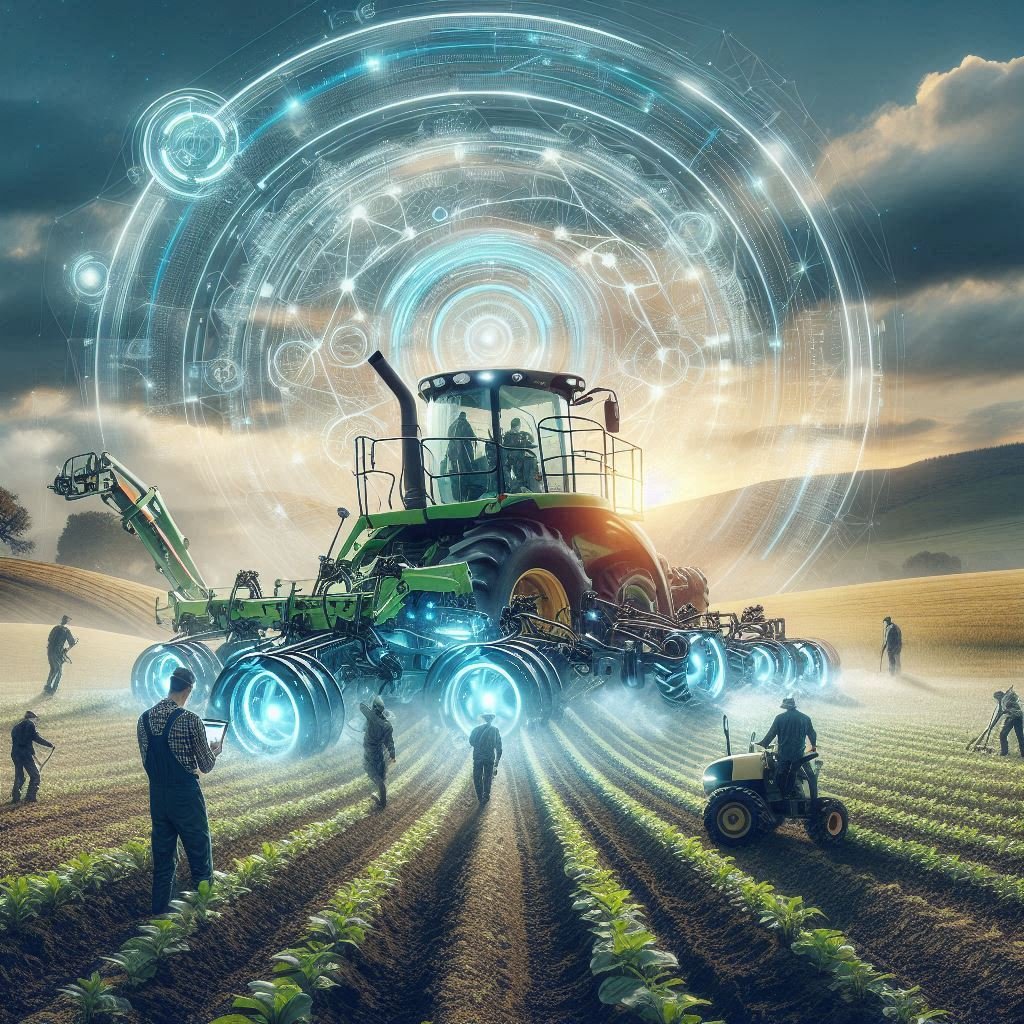In the rapidly evolving landscape of agriculture, technological advancements have played a pivotal role in transforming traditional farming practices. Among these innovations, agricultural machinery stands out as a cornerstone of modern farming, significantly enhancing productivity, efficiency, and sustainability.

1. Increased Productivity and Efficiency
One of the most evident impacts of agricultural machinery is the dramatic increase in productivity. Tractors, harvesters, seed drills, and other mechanized tools enable farmers to perform tasks much faster and more accurately than manual labor. For example, a combine harvester can reap, thresh, and winnow crops in a single operation, covering vast fields in a fraction of the time it would take using traditional methods.
2. Reduction in Manual Labor
Mechanization reduces the dependence on manual labor, which is especially important in regions facing labor shortages. Machines can operate for longer hours and under various conditions, ensuring timely planting, irrigation, and harvesting. This not only cuts labor costs but also reduces the physical strain on farmers, improving overall working conditions.
3. Precision Agriculture
Modern agricultural machinery often comes equipped with advanced technologies like GPS, sensors, and automation systems. These tools support precision agriculture — a farming management concept that uses data to ensure crops and soil receive exactly what they need for optimal health and productivity. This minimizes waste, conserves resources, and increases yields.
4. Enhanced Crop Quality and Yield
The consistency and accuracy provided by machinery result in better crop quality. For instance, mechanized planting ensures uniform seed depth and spacing, which leads to healthier crop growth. Similarly, automated irrigation systems deliver the right amount of water at the right time, preventing over- or under-watering.
5. Cost-Effectiveness Over Time
Although the initial investment in agricultural machinery can be high, the long-term benefits often outweigh the costs. Reduced labor expenses, higher yields, and more efficient use of inputs like seeds and fertilizers contribute to improved profitability. Moreover, as technology becomes more accessible and affordable, even small-scale farmers can benefit from mechanization.
6. Sustainability and Environmental Benefits
Modern machinery promotes sustainable farming practices. Precision equipment reduces the overuse of chemicals, minimizing environmental impact. Conservation tillage equipment helps preserve soil structure and moisture, reducing erosion and improving soil health. Many machines are also being developed with alternative fuels or electric power, lowering carbon emissions.
7. Adaptability to Changing Climates and Markets
Agricultural machinery provides the flexibility to adapt to changing environmental conditions and market demands. Farmers can respond quickly to weather patterns, pest outbreaks, or shifts in crop demand by employing the appropriate machinery, thereby increasing resilience and competitiveness.
Conclusion
Agricultural machinery is no longer a luxury — it is a necessity for modern farming. It empowers farmers to produce more food with fewer resources, meeting the demands of a growing global population while promoting sustainable and environmentally friendly practices. As technology continues to advance, the role of agricultural machinery will only grow more essential, shaping the future of agriculture for generations to come.




